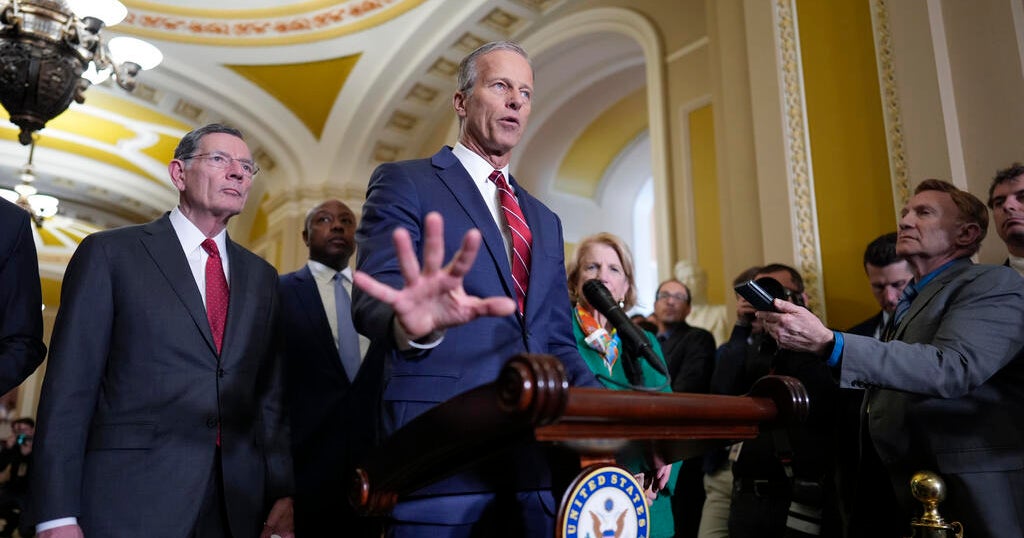Senate Advances Trump-Focused Budget Resolution
Washington — In a significant move towards enacting President Trump’s fiscal priorities, Senate Republicans successfully adopted a budget resolution following an extended overnight voting session.
Details of the Budget Resolution
On Wednesday, Senate Republicans revealed a detailed 70-page budget proposal that outlines a pathway for addressing key issues central to Trump’s agenda. This includes:
- Making existing tax cuts permanent
- Authorizing an additional $1.5 trillion in tax reductions
- Increasing the debt ceiling by up to $5 trillion
Progress Through Procedural Hurdles
After overcoming a procedural challenge on Thursday, with only Senator Rand Paul of Kentucky opposing the plan, the Senate voted 51-48 to pass the resolution during a marathon session known as a “vote-a-rama.” The Senate is preparing to send this resolution to the House for further consideration next week.
Senators engaged in intense deliberations, with multiple amendments proposed by Democrats addressing contentious topics, including Medicaid and Social Security.
Implications and Future Steps
The successful passage of the budget resolution marks just the initial phase in a complex reconciliation process. This approach enables Congress to bypass the traditional 60-vote requirement, allowing Republicans to pursue this legislation without Democrat support. Both the House and Senate must approve identical resolutions that will direct committees to create spending proposals aligned with Trump’s agenda.
Senate Majority Leader John Thune emphasized the resolution’s potential for transformative investments, claiming it fulfills the promises to secure the border, rebuild the economy, and strengthen national defense.
Contentious Budgeting Philosophy
Disagreements persist regarding spending cuts, with the Senate setting relatively low thresholds for certain committees, while the House seeks to achieve at least $1.5 trillion in cuts over the next ten years. Thune criticized Democratic objections, arguing that their response reflects misunderstanding about budgetary baselines.
Additionally, Treasury Secretary Scott Bessent expressed support for the budget resolution, characterizing it as a “smart action” for the economy that would provide tax certainty for families and businesses alike.
Responses from Legislators
Senate Minority Leader Chuck Schumer criticized the Republican narrative surrounding the resolution, claiming that their tax cuts are being presented as financially neutral. “Middle school math students would tell you this is ridiculous,” Schumer remarked, highlighting concerns about the fiscal implications of extending tax cuts originally designed to expire.

